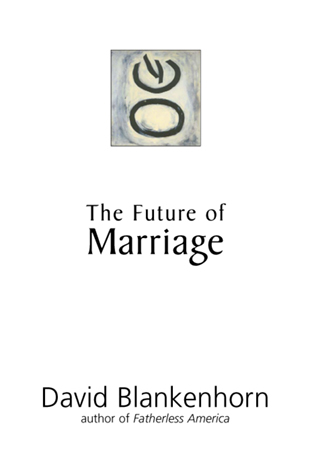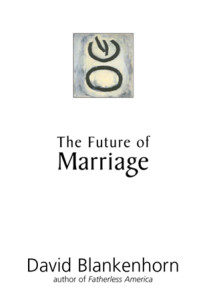With precision and passion, David Blankenhorn offers a bold new argument in the debate over same-sex marriage: that it would essentially deny all children, not just the children of same-sex couples, their birthright to their own mother and father. If we change marriage, we change parenthood—for all families. Altering marriage to accommodate same-sex couples would mean weakening in culture and eliminating in law the idea that children need both their mother and their father.
The Future of Marriage analyzes recent survey data from 35 countries, offering the first scientific evidence that support for marriage is weakest in those nations where support for gay marriage is strongest. Blankenhorn explains how same-sex marriage would transform our most pro-child social institution into a purely private relationship (“an expression of love”) between adults, defined by each couple as they wish. Chang-ing marriage laws to include same-sex couples, he argues, would require us to “deinstitutionalize” marriage, “amputating from the institution one after another of its core ideas, until the institution itself is like a room with all the furniture removed and everything stripped from the walls.”
For Blankenhorn, the main question concerning the future of marriage in the United States is not whether we will adopt gay marriage. The main question is whether the social institution of marriage will become stronger or weaker. If we wish to strengthen marriage on behalf of children, there is no shortage of ideas for doing so. What matters is whether we as a society regard this as a worthy and urgent goal.





